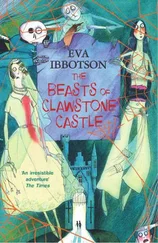Ibbotson, Eva - Magic Flutes
Здесь есть возможность читать онлайн «Ibbotson, Eva - Magic Flutes» весь текст электронной книги совершенно бесплатно (целиком полную версию без сокращений). В некоторых случаях можно слушать аудио, скачать через торрент в формате fb2 и присутствует краткое содержание. Год выпуска: 2011, Издательство: Macmillan Publishers UK, Жанр: Старинная литература, на английском языке. Описание произведения, (предисловие) а так же отзывы посетителей доступны на портале библиотеки ЛибКат.
- Название:Magic Flutes
- Автор:
- Издательство:Macmillan Publishers UK
- Жанр:
- Год:2011
- ISBN:нет данных
- Рейтинг книги:3 / 5. Голосов: 1
-
Избранное:Добавить в избранное
- Отзывы:
-
Ваша оценка:
- 60
- 1
- 2
- 3
- 4
- 5
Magic Flutes: краткое содержание, описание и аннотация
Предлагаем к чтению аннотацию, описание, краткое содержание или предисловие (зависит от того, что написал сам автор книги «Magic Flutes»). Если вы не нашли необходимую информацию о книге — напишите в комментариях, мы постараемся отыскать её.
Magic Flutes — читать онлайн бесплатно полную книгу (весь текст) целиком
Ниже представлен текст книги, разбитый по страницам. Система сохранения места последней прочитанной страницы, позволяет с удобством читать онлайн бесплатно книгу «Magic Flutes», без необходимости каждый раз заново искать на чём Вы остановились. Поставьте закладку, и сможете в любой момент перейти на страницу, на которой закончили чтение.
Интервал:
Закладка:
Since then his hunch had paid off a thousand times. It was not simply that this fragile looking waif with her earth-brown eyes worked a fifteen-hour day, trotting indefatigably through the labyrinthine corridors with loads which would have tired a mountain pony. Nor, even, that she herself had no personal ambition to sing or act or dance but only and always to help and to learn. It was, perhaps, that her patent ecstasy at being allowed to serve art somehow vindicated his own absurd and obsessive life. He and this foundling were fellow sufferers from the same disease.
‘Have you seen to Miss Romola’s bouquet for tonight?’ he began.
‘Yes, Herr Witzler. It’s ordered and I’m going to fetch it after lunch.’
‘You don’t think we could make it a bit smaller?’
Raisa’s bouquets had been steadily shrinking on the principle of the horse from whose feed one removes each day a single oat. It was Tessa’s opinion, now delicately voiced, that they were down to the stage where the horse was in danger of dropping dead.
‘But I could get Herr Klasky’s buttonhole out of it, I think,’ she said, referring to the conductor, ‘which would save a little?’
‘Good, do that. What about the wine for the party tonight?’
‘It’s just arrived and I’ve put it in the wig oven, very low, to make it chambré.’
‘And you’ve remembered my wife’s reservations at Baden-Baden?’
‘Yes, Herr Witzler. A room for one week from June the eighteenth at the Hotel Park, with a cot for your son.’
Jacob nodded gloomily. He had married Leopoldine Goertl-Eisen after that lady, suspended aloft (and in the act of singing ‘Weie, Wiege, Wage die Welle’) had been horribly precipitated by the snapping of her steel cable on to the stage of the Klostern Theatre during a matinee of Rheingold. If he had espoused the massive, bruised Silesian soprano mainly to stop her from suing the International Opera Company, there was no doubt that the marriage was a success. Understandably, however, his Rhinemaiden’s nerves had been affected. When they gave Rheingold anywhere in Vienna, Jacob was compelled to send her to Baden-Baden and the expense was appalling.
‘Then there’s a tenor auditioning at three,’ he went on. ‘Respini can’t come, so you’ll have to accompany him.’
‘Ah, but I don’t play well enough.’
‘For a tenor you play well enough,’ said Jacob firmly. He sighed. ‘I was wondering about a ballet for Tosca ?’
Tessa screwed up her waif-like countenance, pondering. Sylphides in the torture scene? Swans in the prison yard?
Jacob’s efforts to insert a ballet into almost everything were herculean and disinterested since he himself was indifferent to ‘the Dance’. He employed, however, three delectably pretty and available ballet girls known collectively as The Heidis (since two of them were christened thus) in the hope that their presence would lure in the rich patron he so desperately craved.
‘If the Heidis were in the stage box dressed in their tutus with rosebud wreaths and some gauze on their shoulders, you know?’ suggested Tessa. ‘We could keep the lôge light on low above them. Then the gentlemen could see them and if they wished to . . . afterwards . . . they could . . .’
Jacob beamed. ‘Yes! That’s what we’ll do. Now that leaves the new Fledermaus programmes to be fetched from the printers, and I want you to go round and tell Grabenheimer that if I don’t get those poster designs by Friday I’m not interested and if he’s in the Turkish bath, get him out!’
At six the conductor arrived and demanded his button-hole. Zoltan Klasky was a Hungarian with tormented eyes, a shock of long, dark hair and the kind of divine and profound discontent which has sent Magyars through countless centuries galloping westwards and giving everybody hell. He was a brilliant musician who loathed sopranos, tenors and everything that both moved and sang except the occasional nasal and impoverished Gypsy.
Though he conducted even the lightest operettas with maniacal expertise and care, Klasky’s own being was dedicated to the composition of an expressionist opera, now in its seventh year of labour. The libretto of this work, authentically based on a newspaper clipping, concerned the wife of a village policeman who is seduced by a millowner, bears him a son and hangs herself, after which the policeman goes mad and tries to murder the baby and serve it to the millowner in a fricassée.
While Tessa had doubts about the operatic qualities of the fricassée, like the rest of the company she was a staunch believer in Klasky’s opera which was scored for strings, mandolins and thirty percussion instruments and would herald a new era in atonal music drama, when it was at last performed.
Now, however, there was a peremptory screech from the star dressing-room, announcing Raisa Romola’s arrival. Within five minutes, Raisa’s dachshund (who inexplicably had remained uneaten during the hardest years of the war) had made a puddle, the state of her head notes made it impossible for her to go on and the tenor, Pino Mastrini, had accused her of stealing his egg.
Tessa dealt with the dachshund, rushed down to the spats box to fetch the egg so vital to the tenor’s larynx, ran up to the chorus dressing-room to help Lucia’s clansmen with their tartan plaids . . .
And the curtain went up.
Three hours later Tessa, leaning humbly against an upstage tombstone holding her glass of wine, heard Jacob Witzler announce that their new production would be Debussy’s lyrical masterpiece, Pelleas and Melisande.
The clock was striking two when she let herself back into the house in the Wipplingerstrasse. It was not until she was standing at her attic window, once again brushing her hair, that she remembered the letter which had come that morning and was still unread in the pocket of her smock.
She opened it, noting with approval that her aunt had learned to address her in the way that Tessa had instructed, read it through once, then read it through again.
The news was wholly and absolutely good. It was necessary for Tessa to repeat this to herself with resolution because there was no denying that she did feel . . . well, a pang, and that her stomach seemed to be plunging about in a rather uncomfortable way. It was rather as though the whole of her childhood had suddenly dropped into a void. But that was absurd, of course; just sentiment and a failure of courage – and anyway she had no choice. The thing to hold on to was that she was free now . . . free for work, for art, for life!
And opening the window, allowing her long hair to ripple over the sill, the Princess Theresa-Maria of Pfaffenstein leaned her head on her arms, blinked away the foolish tears that threatened her and smiled at the moon.
4
In the breakfast room of Schloss Spittau, watched from the banks of the moat by a pair of moulting swans, Dorothea, Princess of Spittau, was reading a letter.
From the turreted windows of the room, as from all the windows of the castle, one looked out on water. Spittau’s long, low, yellow-stuccoed main front, with its flanking pepper-pot towers, was lapped by the waters of the Neusiedler See, a large, reedy and melancholy lake stretching away to the Hungarian border. The north, west and south sides of the ancient Wasserburg were surrounded by a wide and scummy moat. Only a single causeway connected the castle with the swampy, pool-infested marsh, which in that desolate, aqueous region had to pass for land.
‘Pfaffenstein is sold!’ said the princess now, looking across the table at her son. ‘And well sold. To a foreigner. A millionaire!’
Prince Maximilian of Spittau, thus addressed, momentarily stopped chewing and said, ‘Putzerl will be pleased.’
Читать дальшеИнтервал:
Закладка:
Похожие книги на «Magic Flutes»
Представляем Вашему вниманию похожие книги на «Magic Flutes» списком для выбора. Мы отобрали схожую по названию и смыслу литературу в надежде предоставить читателям больше вариантов отыскать новые, интересные, ещё непрочитанные произведения.
Обсуждение, отзывы о книге «Magic Flutes» и просто собственные мнения читателей. Оставьте ваши комментарии, напишите, что Вы думаете о произведении, его смысле или главных героях. Укажите что конкретно понравилось, а что нет, и почему Вы так считаете.












